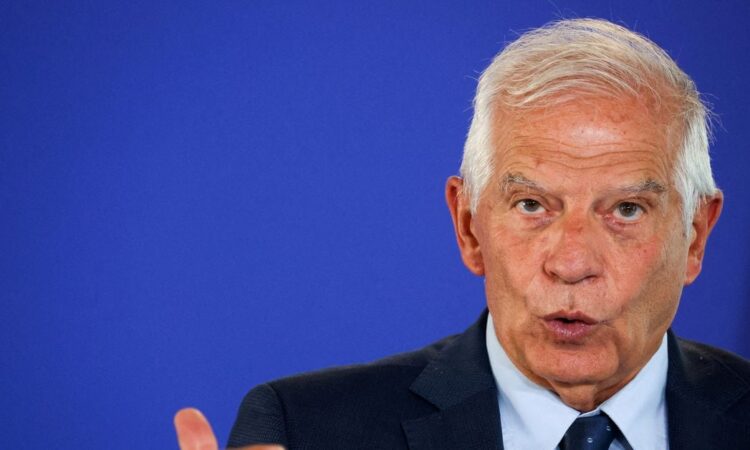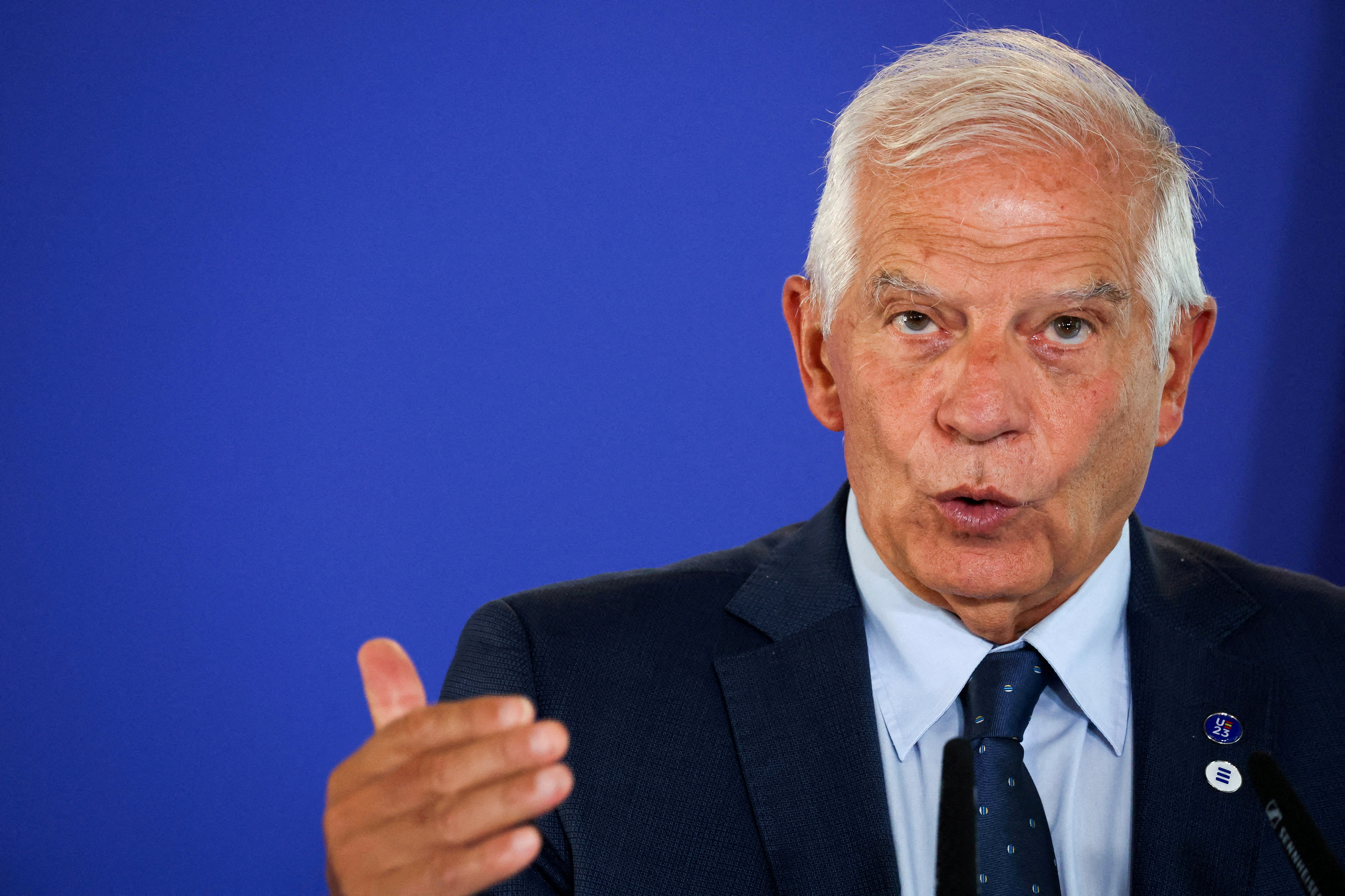

The EU High Representative for Foreign Affairs and Security Policy Josep Borrell speaks next to Spain’s Minister of Defence Margarita Robles (not pictured) at a press conference during the informal EU ministerial meeting on defence in Toledo, Spain August 30, 2023. REUTERS/Isabel Infantes/File Photo Acquire Licensing Rights
BRUSSELS, Nov 13 (Reuters) – European Union foreign policy chief Josep Borrell set out proposals on Monday for how Gaza should be run after the war between Israel and Hamas, calling on Arab countries to play a greater role in a future Palestinian administration.
Borrell, who will travel to Israel, the Palestinian territories and neighbouring countries later this week, said it was vital to think about what happens after the war, even as the fighting rages.
He said the international community had failed “politically and morally” to create a durable settlement to the long-running conflict between Israelis and Palestinians and it was now time to redouble efforts to find a two-state solution.
Speaking to reporters after an EU foreign ministers’ meeting in Brussels, he presented his proposals as saying “no” to three things and “yes” to three others.
He said no to any forced displacement of Palestinians from Gaza, to a permanent re-occupation by the Israeli military or any change to Gaza’s size and to a return of Hamas.
He should there should be “a Palestinian authority,” which he suggested could be a “reinforced” version of the current Palestinian Authority that runs the West Bank, “with a legitimacy to be defined and decided upon by the (U.N.) Security Council”.
He said Arab countries would have to be more strongly involved in supporting this Palestinian Authority and that the EU should also be more involved in the region, particularly in building a Palestinian state.
“There will be no solution without strong commitment from the Arab states, and that cannot be limited to money. They can’t just pay … for a physical reconstruction,” Borrell said.
“There has to be a political contribution to the construction of a Palestinian state,” he said.
While the EU has not been a major diplomatic player in the current crisis, it does have some leverage in the region – not least as the biggest aid donor to the Palestinians.
“We have been far too absent. We have delegated the solution of this problem to the United States,” Borrell said. “But Europe must become more involved.”
Reporting by Andrew Gray; Editing by Christina Fincher
Our Standards: The Thomson Reuters Trust Principles.





